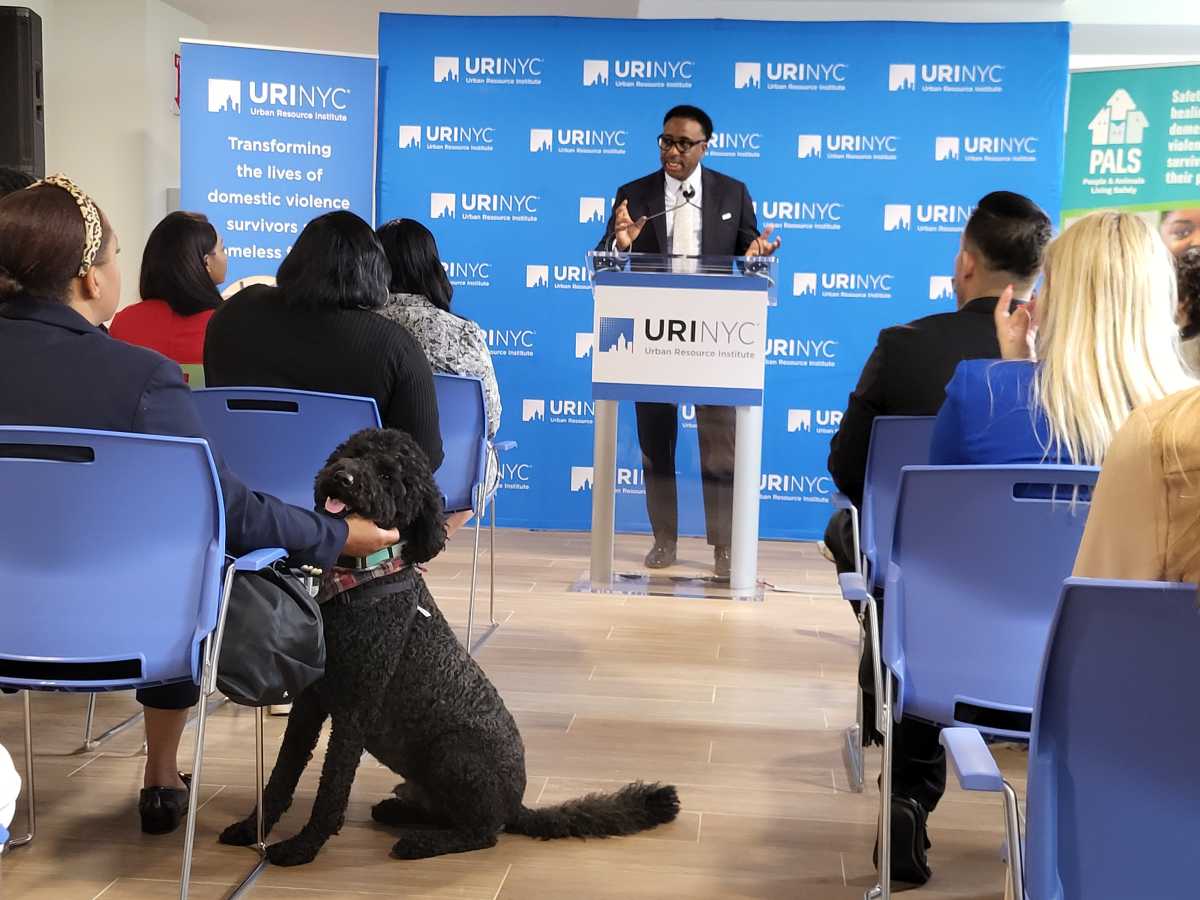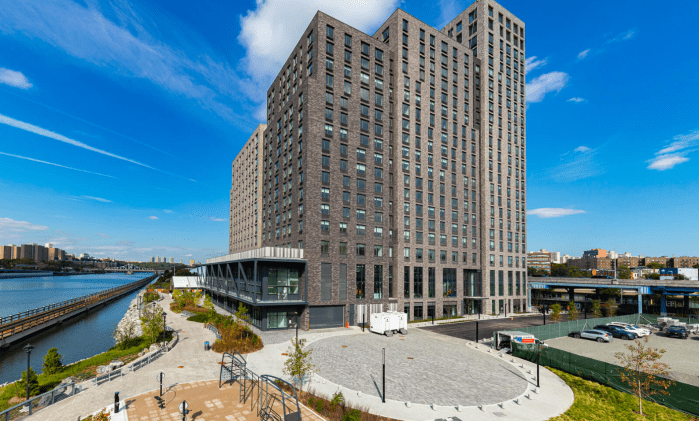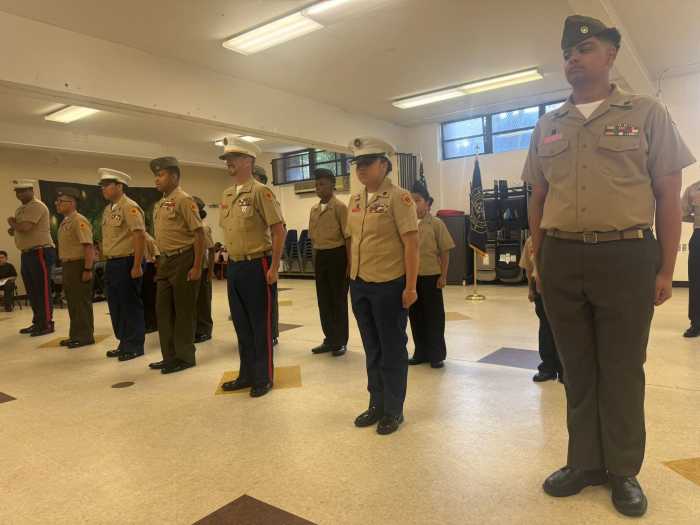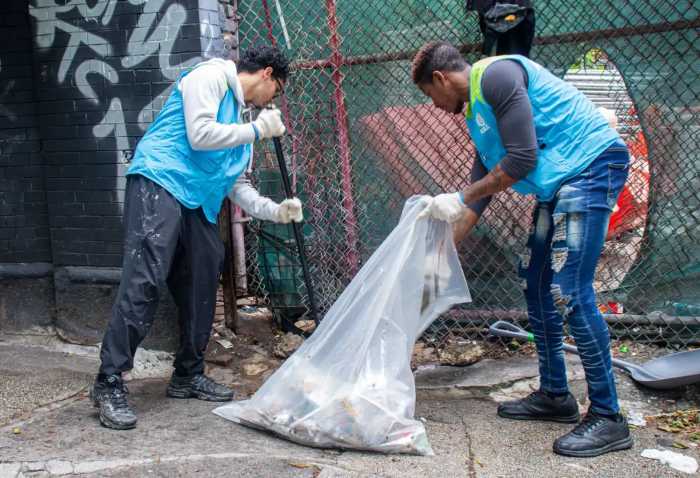Some families experiencing homelessness in the city will no longer have to choose between seeking shelter and keeping their beloved pet, thanks to a pilot program announced Thursday, May 2, by the nonprofit Urban Resource Institute.
The group, in partnership with the city’s Department of Homeless Services, operates the Uplift Families Residence in the Castle Hill neighborhood, which has set aside five apartment-style units for a pilot of the People and Animals Living Safely (PALS) program. The organization is hoping to expand to more units in the future.
While Urban Resource Institute (URI) has operated the PALS program in domestic violence shelters since 2013, this pilot marks the first time that New York City families experiencing homelessness can bring their pet to a shelter. Currently, pets are not allowed at any other homeless shelter in the city.
“This is groundbreaking. It’s a groundbreaking initiative,” said CEO Nathaniel Fields, who said that the concept of keeping pets and families together was a rare easy sell to government entities. “I have not seen such enthusiasm from government,” he said.
That’s probably because many people from all walks of life — no matter how rich or poor — consider their pet part of the family and cannot imagine life without them, no matter how difficult their circumstances.
One of those animal lovers is Council Member and Majority Leader Amanda Farías, for whom the usual binary of dog person vs. cat person only scratches the surface.
“I raise the roof for all pets,” she said — cats, dogs, guinea pigs or otherwise.
Farías described the Bronx as “plagued” by domestic violence, as the borough has the city’s highest number of cases and deaths, especially among women of color. For people looking to move on from trauma, their pets can provide constant companionship and unconditional love.
“Healing does not happen alone,” Farías said.
URI is already the country’s largest provider of domestic violence shelter services, serving 40,000 people across 24 sites. Across the city, 575 families and 775 pets have been sheltered by URI — and this expansion of PALS will help even more people and animals find a safe refuge from abusive situations.
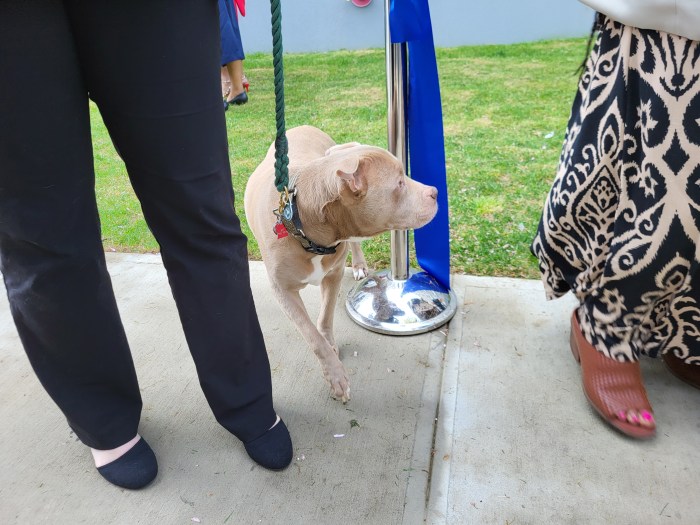
Research by URI found that 97% of respondents said that their pet was an important factor in considering whether or not to seek shelter from a domestic violence situation — and 50% of respondents say they would not consider going to shelter if it meant leaving their pet behind.
On Thursday, the real stars were Oliver, Pork Chop, Zeus and Autumn, the four dogs that accompanied their owners to the announcement whose excited barks occasionally punctuated the day’s speeches.
CEO Nathaniel Fields said nonprofits like his are accustomed to butting heads with government officials, who often used to believe that “if you build shelters that are too nice, people won’t want to leave.”
But for Hope Dawson Sessoms, a domestic violence survivor who spoke at the event, being able to keep her small dog, Coco, was instrumental in helping her family move on from an abusive situation.
She said the PALS program does not incentivize people to stay in shelters — rather, it helps them recover more completely, “creating shelters that are so nice that people are better when they leave.”
The newly-constructed Uplift Families Residence has 161 units that can house approximately 587 people on a temporary basis. Most families stay from six months to one year, according to URI staff. Referrals come via city agencies, and the first family moved in in March as the units continue to fill up.
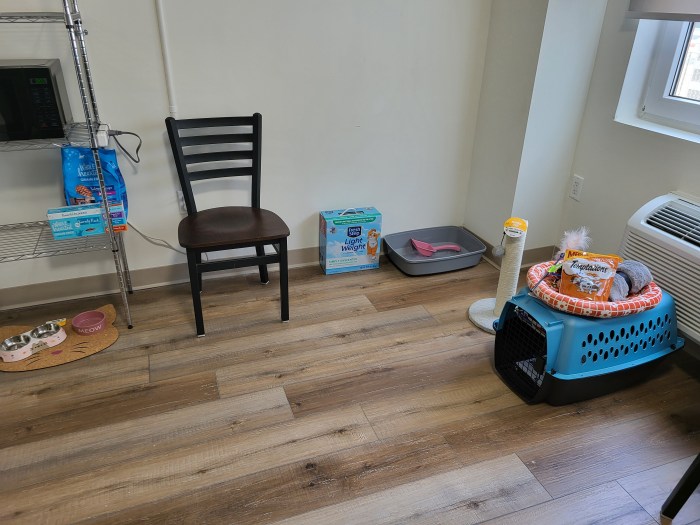
Over the years, PALS has received support from the ASPCA, the Mayor’s Office of Animal Welfare and other groups that specialize in animal care. Families in the PALS program at Uplift are welcomed to their temporary home with a stash of free supplies — leashes, crates, litter boxes, aquariums, or whatever is necessary — as well as access to free veterinary care, grooming and behavior help.
Years ago, “I rolled my eyes” at the idea of a pet-friendly shelter, said Joslyn Carter, administrator of the Department of Homeless Services. But when she got a dog of her own, she began to understand the strength of the bond between people and pets.
“I know what happens when I get home and he’s waiting at the top of the stairs saying, ‘Mommy, welcome home,’” said Carter. Allowing some homeless families to keep their pet is one way that the city is “raising the bar” for what shelters can be, she said.
Another important factor is that URI owns the building that houses Uplift, which helps the city control future costs and means the nonprofit will not have to contend with rent increases, according to Molly Wasow Park, Commissioner of the Department of Social Services.
Uplift is a great example of government and nonprofit partnership, Park said, and she had high praise for the building itself. “Physical space is part of the recovery process.”
The building is fully electric-powered and backed up with a generator, and every apartment comes equipped with cooking supplies, a TV, furniture, wifi and cable, according to URI staff who lead tours of the designated PALS units. The building also has a communal laundry room and outdoor space with a pet park and playground in the works.
Danielle Emery, who directs the PALS program, spoke to the audience with her dog, Pork Chop, watching attentively by her side.
When families come to shelters, they often have to leave behind books, toys or other things important to them, she said.
For people facing trauma, “The unconditional love of a pet may be one of the only constants in a constantly changing world.”
This story was updated at 8:45 p.m. to clarify the animal groups supporting but not operating the PALS program.
Reach Emily Swanson at eswanson@schnepsmedia.com or (646) 717-0015. For more coverage, follow us on Twitter, Facebook and Instagram @bronxtimes

